›
›
›
15 Sep 2020
How well do dietary guidelines by Canadian Diabetes Association (CDA) align with those by
Plant-Based Organizations like
ACLM,
PCRM,
PBHP (UK),
Plantrician Project,
DFN, and
PAN? Do they endorse a vegan or plant-only food system?
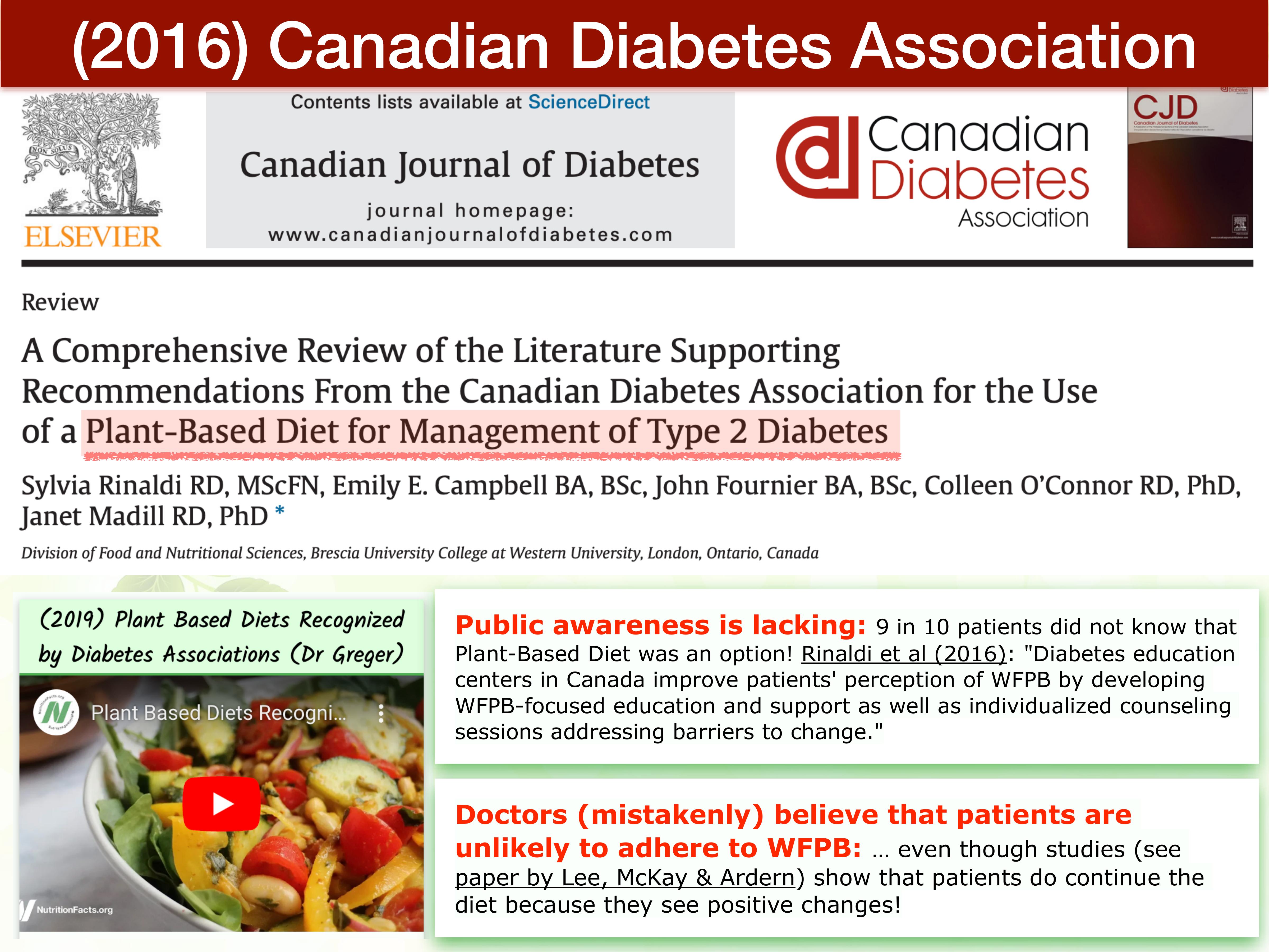
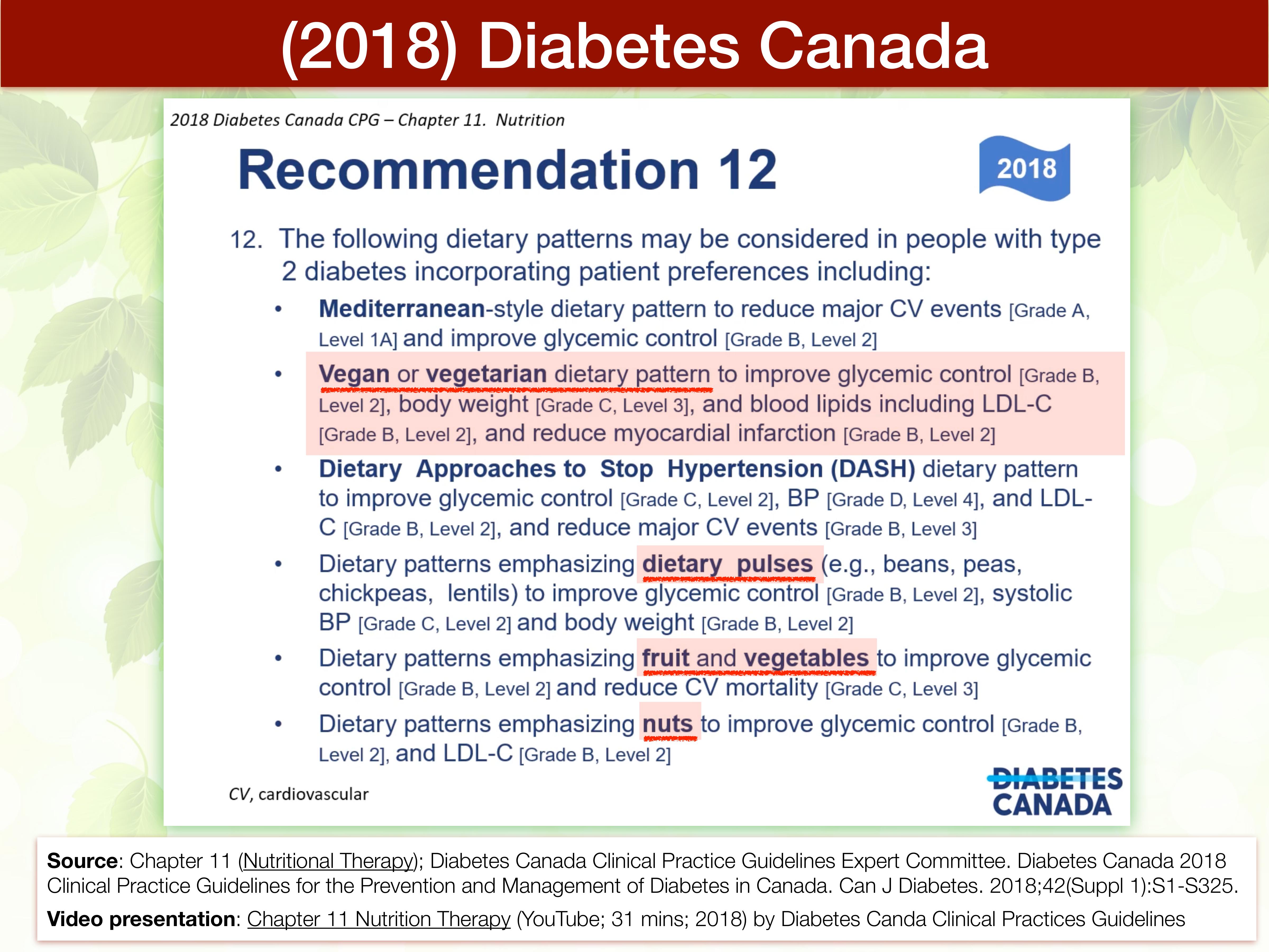
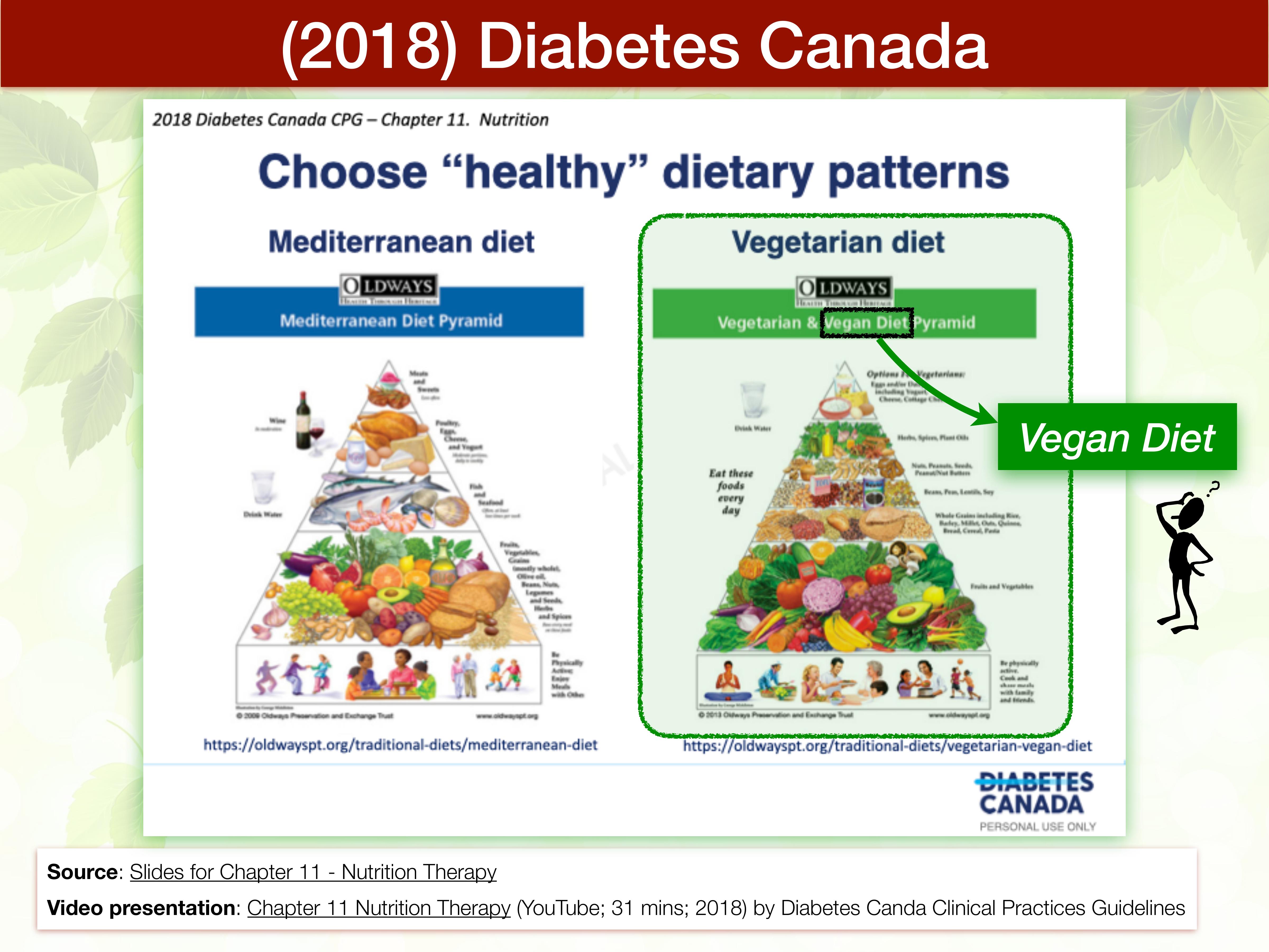

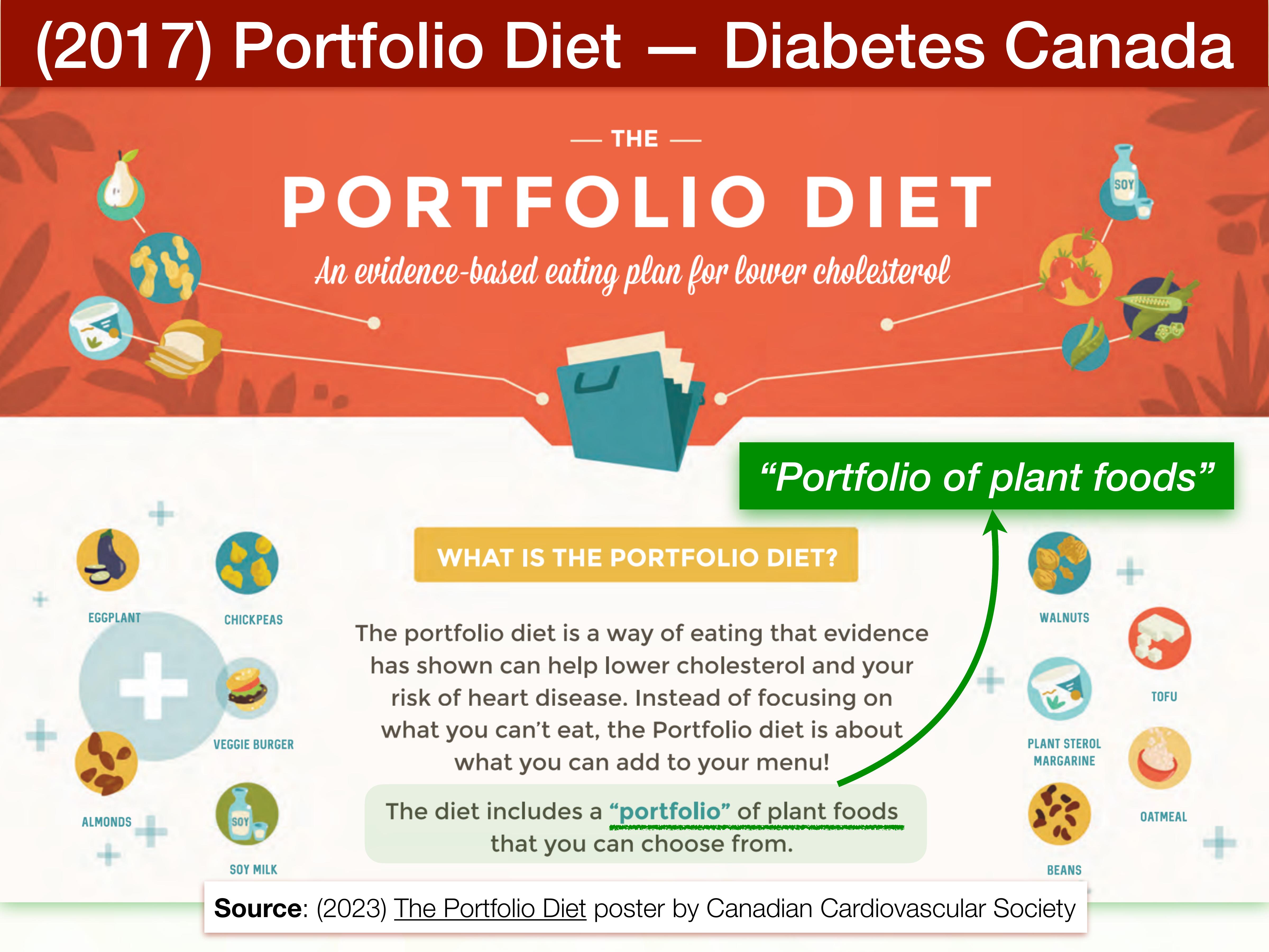

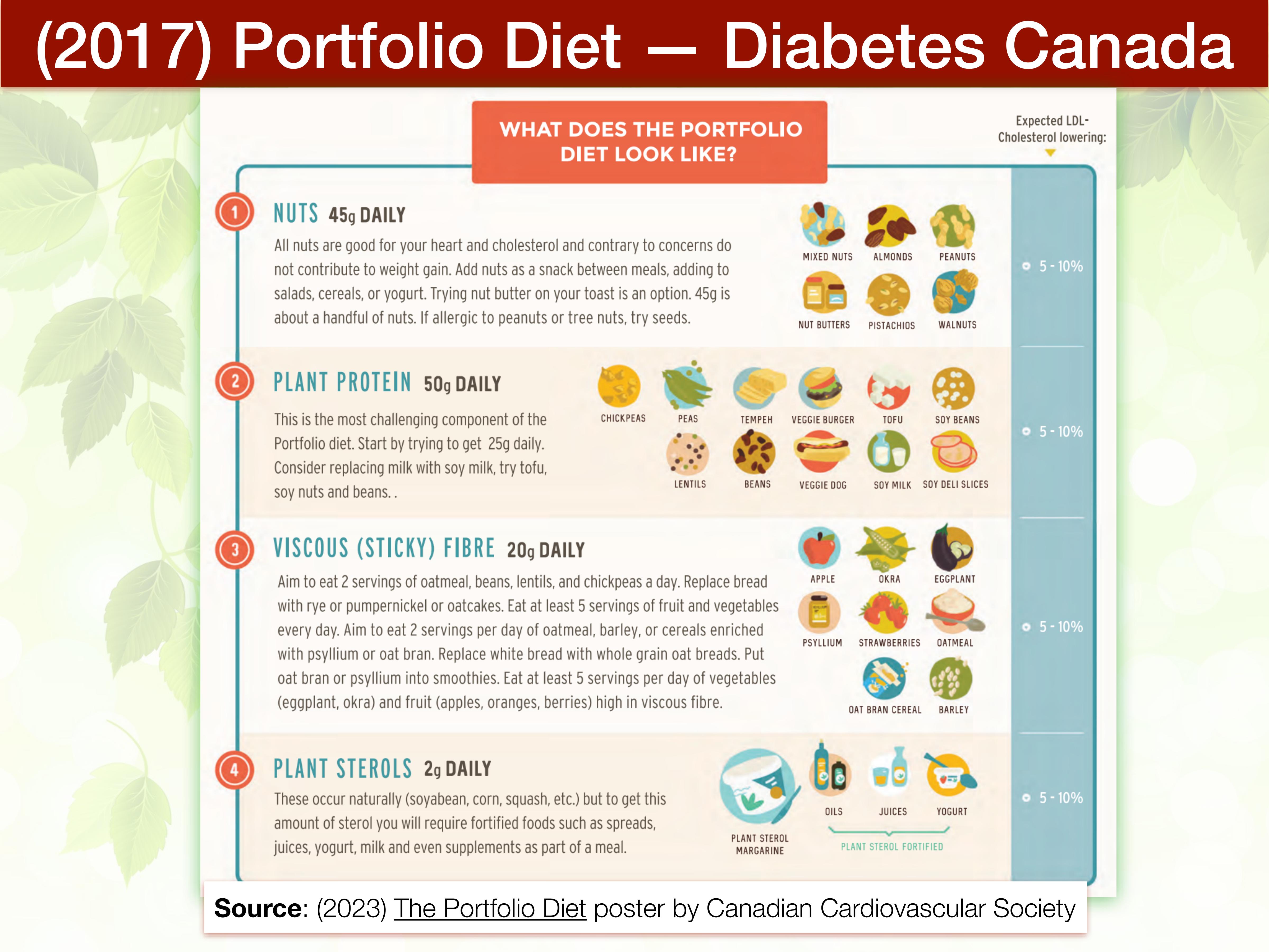
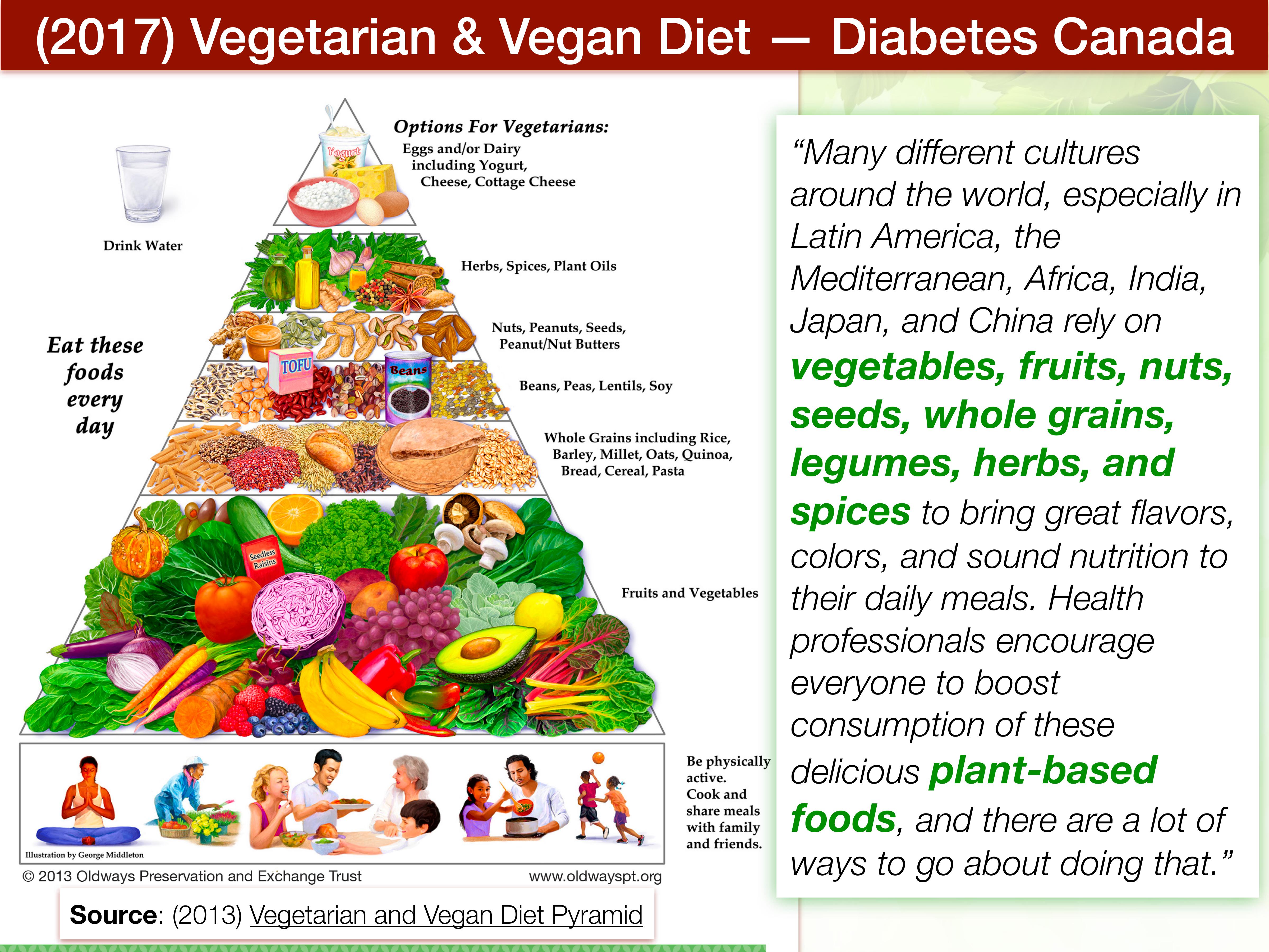
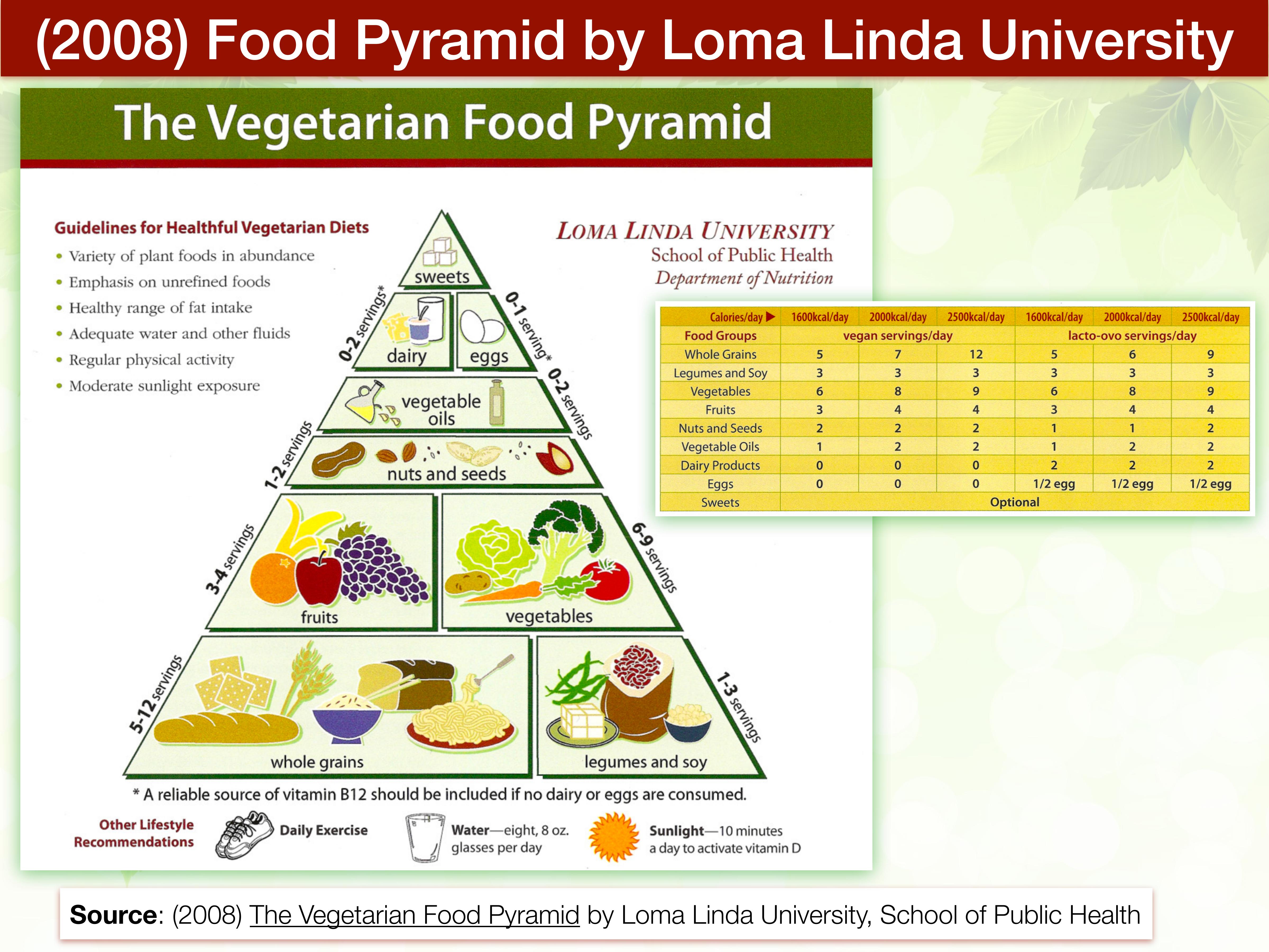
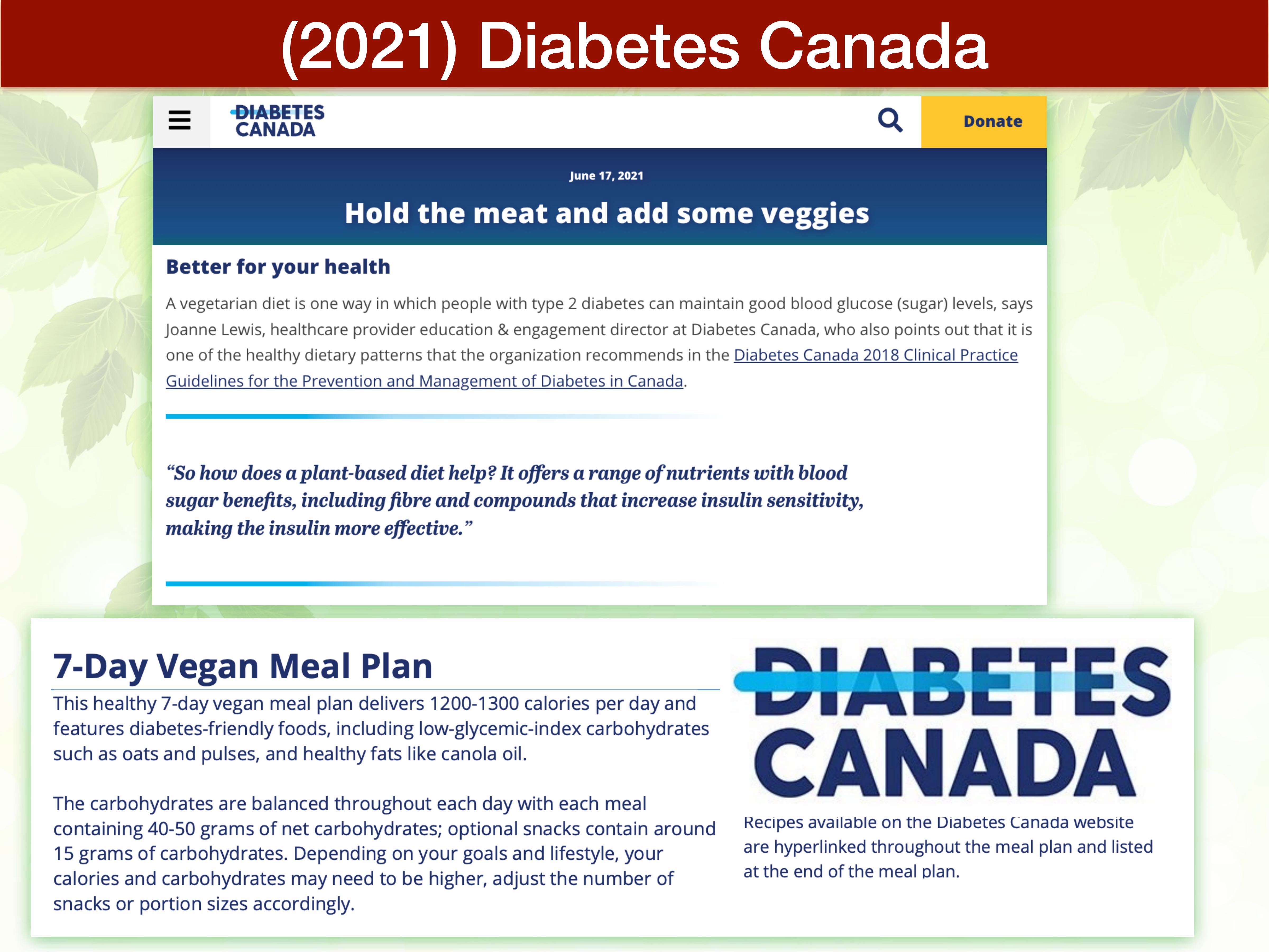 In the video below, Dr Greger mentions that since 2016, Canadian Diabetes Association has taken Whole Food Plant-Based (WFPB) guidelines seriously.
In the video below, Dr Greger mentions that since 2016, Canadian Diabetes Association has taken Whole Food Plant-Based (WFPB) guidelines seriously.

Sources:
A Comprehensive Review of the Literature Supporting Recommendations From the Canadian Diabetes Association for the Use of a Plant-Based Diet for Management of Type 2 Diabetes by Sylvia Rinaldi et al, Canadian J Diabetes, Volume 40, Issue 5, p471-477, October 2016.

Sources:
Chapter 11 (Nutritional Therapy); Diabetes Canada Clinical Practice Guidelines Expert Committee. Diabetes Canada 2018 Clinical Practice Guidelines for the Prevention and Management of Diabetes in Canada. Can J Diabetes. 2018;42(Suppl 1):S1-S325.
Video presentation: Chapter 11 Nutrition Therapy (YouTube; 31 mins; 2018) by Diabetes Canda Clinical Practices Guidelines

Sources:
(a) Slides for Chapter 11 - Nutrition Therapy, (b) Video presentation: Chapter 11 Nutrition Therapy (YouTube; 31 mins; 2018) by Diabetes Canda Clinical Practices Guidelines.

Sources:
(a) Slides for Chapter 11 - Nutrition Therapy, (b) Video presentation: Chapter 11 Nutrition Therapy (YouTube; 31 mins; 2018) by Diabetes Canda Clinical Practices Guidelines.

Sources:
(2023) The Portfolio Diet poster by Canadian Cardiovascular Society.

Sources:
(2023) The Portfolio Diet poster by Canadian Cardiovascular Society.

Sources:
(2023) The Portfolio Diet poster by Canadian Cardiovascular Society.

Sources:
(2013) Vegetarian and Vegan Diet Pyramid

Sources:
(2008) The Vegetarian Food Pyramid by Loma Linda University, School of Public Health

Sources:
(a) Hold the Meat and Add Some Veggies (2021) at Diabetes Canada website, (b) 7-Day Vegan Meal Plan at Diabetes Canada website.
(2019) Plant-Based Diets Recognized by Diabetes Associations
(5 mins) Transcript. Dr Greger's summary: "Plant-based diets as the single most important, yet underutilized, opportunity to reverse the pending obesity and diabetes-induced epidemic of disease and death."
(2016) Canadian Diabetes Association
In the video above, Dr Greger refers to two papers:
- A Comprehensive Review of the Literature Supporting Recommendations From the Canadian Diabetes Association for the Use of a Plant-Based Diet for Management of Type 2 Diabetes by Sylvia Rinaldi et al, Canadian J Diabetes, Vol 40, Issue 5, pages 471-4277, October 2016 (full article: pdf file).
- Awareness and Perception of Plant-Based Diets for the Treatment and Management of Type 2 Diabetes in a Community Education Clinic: A Pilot Study by Lee, McKay & Ardern, J Nutrition and Metabolism, Volume 2015, Article ID 236234, 6 pages.
Dr Greger's commentary is insightful. He explains why adoption of WFPB guidelines for diabetes has been slow despite Canadian Diabetes Association okaying it. Here are some reasons:
- Public awareness is lacking (9 in 10 patients did not know that WFPB guidelines was a viable option). The paper by Rinaldi et al (2016) recommends that "Diabetes education centers in Canada improve patients' perception of WFPB by developing WFPB-focused education and support as well as individualized counseling sessions addressing barriers to change."
- Doctors believe that patients are unlikely to adhere to WFPB even though studies (see paper by Lee, McKay & Ardern above) show that patients do continue the diet because they see positive changes.
For details, please see Dr Greger's video.
© Copyright 2008—2025, Gurmeet Manku.

 Instagram
Instagram YouTube
YouTube